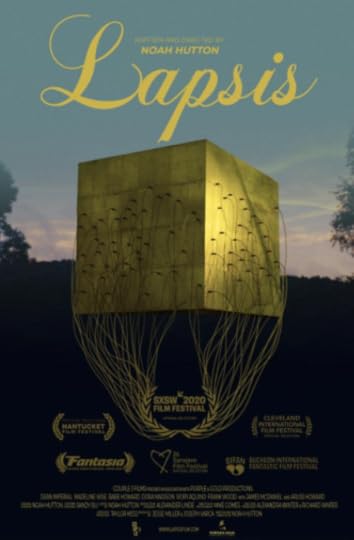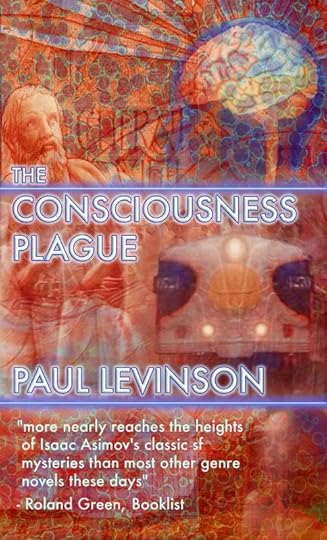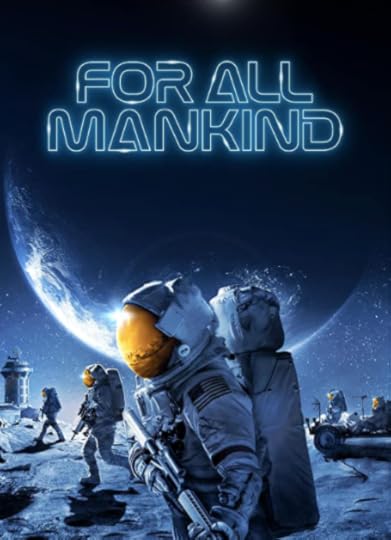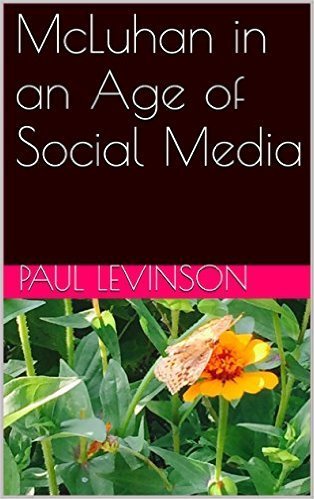Paul Levinson's Blog: Levinson at Large, page 104
March 1, 2021
Debris 1.1: Some Probability of Gems Among the Pieces

Debris debuted on good old NBC tonight -- a fast-paced, surprisingly deep piece of science fiction, which has real potential.
The set-up: in an alternate-present or near-future reality, an exterrestrial ship, wrecked, shows up in our solar system. Debris rain down on our planet. And they have a bizarre series of unnatural effects, including allowing someone holding a piece to "phase" through matter, having the effect on others of bringing the dead back to life in a way that (of course) has profound consequences on the survivors, etc. The coming attractions advertise more of these effects to come. Jonathan Tucker plays CIA agent Brian Beneventi, Riann Steele plays MI6 agent Finola Jones, and they are cooperating, for the most part (also of course), in an effort to find out what's going on, how to get on top of the extraterrestrial tech, etc.
So there are a lot of pieces in motion at the beginning of this narrative, and some of them are obvious, but all together the pieces could make for a compelling piece of television. For one, the story picks up speed very quickly, which is always a good thing. For another, the various powers that come from pieces of the wrecked ship have no apparent connection, and that's a good thing, too, because there's lots of room for development at this point.
I think it's become tough for a network to put out a good science fiction story, given the advantages that streaming services have in making original leaps. But anything is possible in a weekly showing riven with commercials, especially when the tableau is science fiction, so I'll be watching and reviewing at least the next few episodes.
 first starship to Alpha Centauri ... and they only had enough fuel to get there
first starship to Alpha Centauri ... and they only had enough fuel to get there
Paul Levinson's books ... Paul Levinson's music
February 28, 2021
Woody Guthrie's "This Land is Your Land" -- In Yiddish, with a Message
I just love this new, Yiddish rendition of Woody Guthrie's "This Land Is Your Land" for a whole bunch of reasons.
Yiddish is a splendid language, unique in its capacity to describe certain kinds of emotions and human situations, and I'm always glad to see and hear it alive and kicking. The special note at the end is also crucial -- that Woody Guthrie's song is often "sanitized," leaving out the words about "stolen land, lives, and labor," and "this Yiddish version [is] in solidarity with Indigenous, Black, and immigrant voices calling for power, reparation, and justice in this land." Yes, indeed. The Jewish people in America have always been strong supporters of those essential values.
Trump did so much damage in so many areas that it's easy to overlook his Gestapo tactics towards people seeking asylum and freedom in this country on our Southern border. I'm glad to see Joe Biden moving with speed to reunite children who were separated from their parents seeking entry to this country. The Democrats now control both Houses of Congress as well as the White House. Daniel Kahn raises his fist at the end, and the words on the screen urge us to "stay healthy and strong against fascism". Yes! And that includes Republicans whose first instinct is to trample on our American values.
In addition to Daniel, great singing by Sarah Gordon, Lorin Sklamberg, Patrick Farrell, Sveta Kundish, Michael Alpert, Linda Gritz, and Yeva Lapsker. And thanks to Forverts (The Forward) for presenting this.
Thanks also to my old friend, Jordan Axelrad, for bringing this video to my attention. Paul Levinson's books ... Paul Levinson's music
February 27, 2021
Lapsis: Heart of Darkness meets Uber

In our COVID-ridden real world, a near-future science fiction movie in which codes and AI are villains is something of relief, in addition to being unsettling, especially if it's well done, which Lapsis very much is.
A new computer system, QUANTUM, is revolutionizing, or promising to revolutionize, our civilization. In order for it to work best, remote areas have to be connected to the network by CABLRs, i.e., independent contractors who lay the cable. They have competition, though, from robot cablrs, also working for the same company. Their purpose is apparently both to keep the human cablrs on their toes as well as laying their own amount of cable.
Ray, desperate for money to pay for his kid brother's medical treatment (he has "omnia," a chronic fatigue syndrome) takes a job as a cablr. Dean Imperial, whom I've never seen before, plays Ray like a minor character from The Sopranos struggling for his day in the sun, or, in this case, the dense forest. (I'd say The Sopranos is about the best series ever to have been on television, so that's high praise.) The forest work is grueling, edgy, even dangerous, and Ray's compensation as an independent contractor is tenuous at best -- hence, Heart of Darkness meet Uber.
Along the way, in and out of the forest, the movie takes shots not only at high-tech, but medical facilities and health-food stores. Ray has some difficulty understanding what's going on a first, but gets almost all of it in the end -- a journey which is actually reassuring to the viewer, who may well be taking the same cognitive trip. It was good to see James McDaniel (NYPD Blue) and Dora Madison (Friday Night Lights) on the screen, and the music was good, too.
That was by Noah Hutton, who also wrote and directed this movie. He's the grandson of Jim Hutton and the son of Tim Hutton (and Debra Winger) and in this his first movie continues the fine tradition of his family.

Paul Levinson's books ... Paul Levinson's music
"Everywhere and Nowhere" by Anne Reburn: Light Strength
Anne Reburn is one of the very best of the new crop of artists who have done astonishingly good covers of classic rock songs ranging from the Beach Boys to ELO. These include Foxes and Fossils, The286, Mr. Jack, The Fendertones, Hal Eisenberg, and The Petersens. In fact, Reburn is in one way even more remarkable, because she sings and plays all of the parts herself.
So I was eager to hear what Anne Reburn sounds like singing a song she wrote. That happened yesterday, with a new release, "Everywhere and Nowhere". She chose to make the video purely acoustic, with lyrics, so we don't see the fetching visual performance of her "clones" that we get on her cover videos. But the song and the performance of "Everywhere and Nowhere" are more than fine.
The song is reminiscent of early James Taylor and even a bit like something from the Beatles' Rubber Soul. It's about love and places, in particular how the place doesn't matter if you have the love, "I'll write a song about how I don't need those places if I've got you with me ... It's not where we are, it's the company."
Her voice has a wispy sweetness with a hint of the sea of power and conviction underneath. The guitar and feel is acoustic, mostly folk but country on edges. As much as I enjoy Anne Reburn's covers, I'm looking forward to hearing more of her original work. Our world is sorely in need of her light touch.

on Bandcamp, Spotify, Apple, Amazon
February 26, 2021
For All Mankind 2.2: The Peanut Butter Sandwich

In some ways my favorite scene in For All Mankind 2.2 on Apple TV+ was Margo struggling to get a peanut butter sandwich out of a vending machine in the early 1980s. Here's a woman who plays a major role getting people to and back from the Moon, doing battle with a recalcitrant vending machine. And, her scientific knowledge about "negative pressure" saves the day and gets that sandwich to drop, just as her savvy is still working to get people up on the Moon.
Otherwise, it was good to see John Lennon in this alternate history alive in the 1980s (as we saw would happen last week) and complaining about Ronald and Nancy. And it was reassuring to see the Mars mission still in prime focus, although it continues to be delayed and more of its funding allocated elsewhere, to the Moon.
This uncovers what will be a significant problem in this alternate reality. In one sense, it has to be easier to get to Mars with an active base on the Moon. On the other hand, the needs of the Moon base will divert attention and money from a voyage to Mars. For that reason, we may have an easier time getting people to Mars in our reality, with nothing much on the Moon at present other than grand memories of the past.
The question of who may be on that first ship with people to Mars was also answered at least in part tonight. Two people who were on the Moon -- Danielle and Gordo -- will be going back there. My guess is, before this season is over, Ed will be back in space, too. I'm hoping that will be on the first voyage to Mars.
And I'll see you back here next week.
See also For All Mankind, Season 1 and Episode 2.1: Alternate Space Race Reality

Paul Levinson's books ... Paul Levinson's music
February 25, 2021
Review of Andrew McLuhan's Written Matter: Poems about Media and More

to be published 23 March 2021 by Revelore Press
Marshall McLuhan wrote about the media in a poetic style, preferring aphorism and metaphoric relations to the bleary-eyed recitation of more conventional media scholars. His style frustrated far more than it delighted in academe, but the passage of time has increasingly confirmed his enormously pathbreaking contribution to understanding media. His grandson Andrew writes poetry about media and other aspects of life on Earth in his new book, his first book, Written Matter. My guess is it will delight lovers of the written word and seekers of truth about our complex existence.
The book begins with eight short poems (all the poems in this volume are short) that start with the media and "the flow of ink, the slow of think" and "when a pen fails, a pencil sails," and returns to media later in the book "where words lay waste ruin". But my favorite poems in this little volume are about nature, as in "the fall softness becomes brittle" and about human life, as in "there I tread where tears tear time".
Half the book are photos taken by Andrew that in one way or another complement the poems on the left-hand side, so we're talking about a total of 28 poems in this volume. I read them in about 20 minutes, but I expect to return to them often in the years ahead.

on Bandcamp, Spotify, Apple, Amazon
February 24, 2021
A Great Week for Covers: Foxes and Fossils Do The Everly Brothers 'Let It Be Me'
So, this week is proving to be a great week for covers -- or at least, my finding them on YouTube. Yesterday, it was The286 and Mr. Jack's wonderful rendition of ELO's "Can't Get It Out of My Head". Today, it's Foxes and Fossils lush and lovely performance of "Let It Be Me," first done by The Everly Brothers in 1957 (one of the best of their many recordings, though, come to think of it, most of their songs are bests) (from the French "Je t'appartiens" in 1955), and then beautifully covered by Jerry Butler and Betty Everett in 1964.
Maggie Adams is in fine voice as lead, tender and powerful, as it always. Sammie Purcell does a perfect high harmony, and Chase Truran sings a wonderful, emotive contralto. The instrumentation provides by the Fossils is crisp and on target. The overall feel is bound to lift your heart.
More Foxes and Fossils here.
Paul Levinson's books ... Paul Levinson's music
McLuhan, the Alphabet, and Nudity
There's a famous, true story about a lecture Marshall McLuhan gave at Louis Forsdale's seminar at Columbia University in New York City in the 1950s. McLuhan observed, at some point, that nudity wasn't a notable thing until the alphabet -- that sensitivity about nudity was an effect of alphabetic literacy.
When McLuhan concluded the lecture, Forsdale opened up the seminar to questions. Robert K. Merton, often known as the "dean" of American sociology, was in the audience. He raised his hand, was called upon, and stood. His face was almost purple with anger. "I don't where to begin," he began, "everything you say is nonsense, where is your evidence ... what on Earth does nudity have to do with the alphabet?" And he went on like that for at least ten minutes.
McLuhan rose, a twinkle in his eye, a smile on his face. "Oh," he said, "you didn't like that idea? Well, how about this one?" And he proceeded to talk, much longer than Merton, about something completely different.
Now, this event is often cited, including by me, as an example of McLuhan prizing exploration and probes over explanation and proofs. And it certainly is.
But someone asked me the other day what I thought McLuhan really meant about alphabetic literacy being the ground for interest in nudity. This was my answer:
I never asked McLuhan about this, so I don’t know exactly what he meant about the alphabet making people more sensitive about nudity. But here’s what I would say, applying McLuhan’s thinking to this question: The alphabet is an abstract mode of communication – the letters of the alphabet have no direct resemblance to the objects they describe in written words. The word “cow” for example, looks nothing like a cow, the word “sun” looks nothing like the sun, etc. (Unlike ideographic writing, in which the written symbols look at least a little like the objects they describe.) So, people who use the alphabet are aware of the “cover” or the alphabetic word, and the reality it describes (the word “sun” and what the sun really looks like). And clothes, of course, are a cover, too – a dress or a shirt doesn’t really look like the naked body beneath. But just as we use the alphabet to write about things, so we usually see and interact with people in clothes. In such a society, we become hyper-aware, more sensitive, about someone wearing no clothes at all.
So, what did you think of my explanation? Did you like it? Not sure? Ok ... let me tell you how my Prius retrieves Cinderella's Pumpkin Coach, when you leave it in the driveway for more than a month, undriven in this Covid lockdown.
February 23, 2021
Another Outstanding Cover: ELO's Can't Get It Out of My Head, by The286 and Mr. Jack
This one's a real beauty from August 2020: a combination of the U.K. group The286 and the Argentinian group Mr. Jack doing a spot-on rendition of one of my all-time favorite songs by one of my all-time favorite groups: "Can't Get It Out of My Head" by the Electric Light Orchestra.
They even get "wave chicane" right -- that is, I think so, because, just like in Jeff Lynne's voicing, it almost, very nearly sounds like "wave she came".
My only regret is you don't see the head that goes with the fingers with the light turquoise fingernails that play that synthesizer so well. But, hey, Spencer Hannabuss as lead sounds like he's close to getting tongue-tied in the "William Tell" sequence, just like Jeff Lynne, and Madeleine Sugden sure evokes Stevie Nicks, so enjoy.
Paul Levinson's books ... Paul Levinson's musicFebruary 21, 2021
Podcast Review of For All Mankind (Season 1 and Episode 2.1)
Welcome to Light On Light Through, Episode 168, in which I review For All Mankind (Season 1 and Episode 2.1)
Blog post review of For All Mankind
Podcast reviews of other Ronald D. Moore TV series:
Outlander: First Half Season Galactica DylanRed Moon (2000) by David S. Michaels and Daniel Brenton
The Missing Orientation -- why we've made so little progress on and beyond the Moon in our reality
The Loose Ends Saga -- another alternate space travel history

Paul Levinson's books ... Paul Levinson's music
Levinson at Large
- Paul Levinson's profile
- 340 followers





